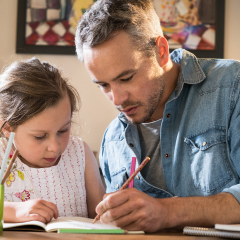It’s now been confirmed there will be no Year 6 SATs for the second year running. This follows the announcement that KS1 tests were cancelled at the end of last year.
Last year when the pandemic closed schools to most pupils and national assessments were withdrawn, it was assumed that it would be a one off. But as we enter 2021, Covid-19 is still with us and once again we’re faced with school closures, cancelled exams and disruption to learning.
Education Secretary Gavin Williamson told MPs that continuing with Year 6 SATs would be an additional burden on schools, and many school leaders would agree. The announcement has no doubt been welcomed with a sigh of relief in many quarters but there may also be some frustration in others.
So what is the likely impact of cancelling SATs in 2021?
A missed opportunity for national benchmarking?
Despite their detractors, many heads and other school leaders use the SATs data to compare their pupils’ performance in a national context. Indeed, some schools rely heavily on SATs data to identify where they should focus their resources, so a dip in maths results could signal a need for additional training or performance management in this area.
Many secondary heads use the data to help them understand their new intake, particularly when it comes to identifying potential gaps in learning which need to be addressed early in Year 7.
And parents may miss this added opportunity to understand how their child is doing at school and how they could offer support at home.
There’s also the fact that SATs are an established feature of the education landscape and at KS2 are part and parcel of a child’s last year of primary school, along with leavers’ assemblies, signing shirts and school trips – most of which were also a casualty of the pandemic.
Or a chance to focus on other things?
Over the past year, there have been huge variations in the way schools and their families have been affected by virus outbreaks, tiered restrictions and interruptions to children’s education. Some schools have had to keep entire year groups at home to prevent the spread of infection. Others have seen their communities devastated by financial hardship.
Now we are in a third lockdown and once again pupils are having vastly different experiences of learning. There’s simply no level playing field.
Many heads feel strongly that testing takes time away from teaching and will be glad to be relieved of the pressure of preparing children for SATs. They can focus their time and energy wholeheartedly on helping pupils make up for the learning they have missed.
Building on firm foundations
So without SATS for the second year in a row, where do we go from here?
SATs tell us what a child can do and whether they are at the expected level in maths and English. What they don’t tell us is what that child has missed in their learning and how they have progressed since the pandemic started. Or how well they are doing in other subject areas.
Cancelling the SATs creates an opportunity for teachers to change the emphasis of the assessment process. where teachers look at the building blocks a child needs to move ahead.
Teachers can concentrate on the more subtle, stress free assessment of their pupils during day-to-day teaching and learning to see where progress is being made and what the next steps should be.
This approach makes sense in a year where the gaps that have appeared due to months of disrupted formal education will be wider and more diverse than ever before.
With SATs no longer a feature, leaders can ensure that children enjoy a more varied and comprehensive curriculum as they head towards secondary school.
Love them or hate them, mourn them or rejoice, not having to prepare pupils for SATs reduces the pressure on teachers as well as pupils and this has to be a good thing when schools are doing all they can to alleviate stress and boost resilience and wellbeing.
There were no SATs in 2020, and the sector has managed without them. Primary schools were still able to assess their pupils, secondary schools catered for their new cohorts and the Year 7s soon found their feet in their new schools.
Our children have missed out on so much this past year, whether we are for or against the cancellation of SATs, we can all agree that the focus on preparing our children in the best way possible for their next step in education has to be the priority.










